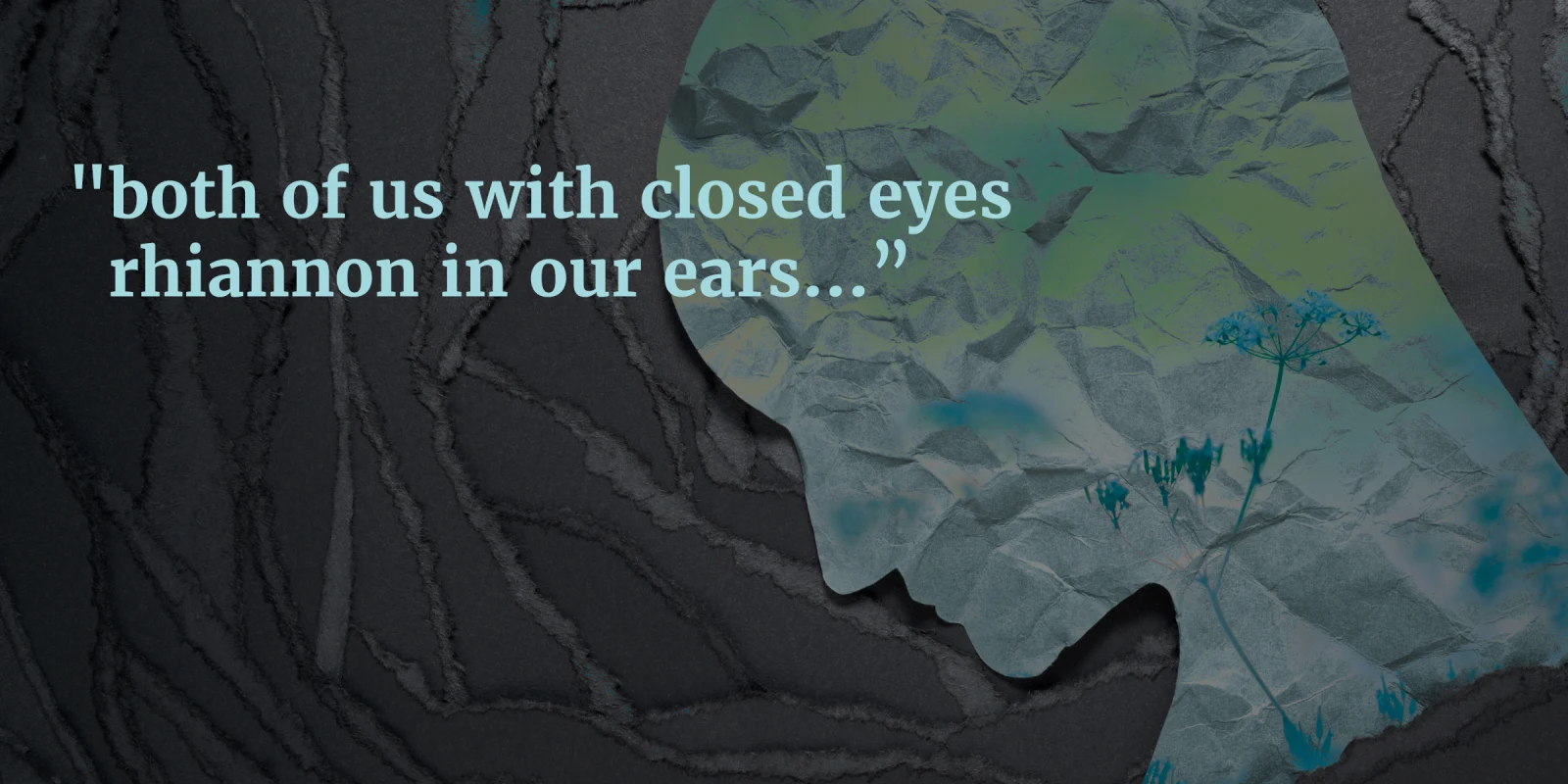This is part of the Medical Humanities Series on Op-Med, which showcases creative work by our members. Do you have a poem, short story, creative nonfiction or visual art piece related to medicine that you’d like to share with the community? Send it to us here.
bilirubin dreams
your eyes are big big
and this bed is too small small
and there is so much yellow yellow
yellow eyes
and yellow skin
yellow everything
bilirubin dreams
how are you feeling?
not so good
they told me that they can’t do
anything for me
but i’m not giving up
this is going to sound strange
but will you play some fleetwood mac for me?
both of us with closed eyes
rhiannon in our ears
interrupted by the beep beep beep of the monitor
that night i dream of yellow highlighters
drip dripping
all over
white sheets
that night i dream of your eyes
like sunflowers
that night i dream
of stevie nicks
singing us a lullaby
An Interview with the Poet
What inspired “bilirubin dreams”?
During my fourth year of medical school, I decided that I would graduate but would not go into residency. Even though I no longer see patients, I still have all of these experiences from my time in med school that I want to write about.
For this piece, I have this very strong memory of being in this room with a patient where we both knew that she didn't have much time left. Listening to music together was a much-needed respite away from the difficulty of what was happening.
You use repetition throughout this poem. How do you use repetition as a poetic device?
Repetition is something that I use in many of my poems. Part of me finds it soothing, and I also think it's a great way to emphasize particular lines or sounds. The repetition in "bilirubin dreams" makes it feel like a lullaby of sorts, which makes sense with the general theme of music/sound and how it relates to healing.
You mention the band Fleetwood Mac in your poem. How can music aid in the dying process and how can clinicians use music more in their practice?
Playing somebody's favorite music during the dying process can bring great comfort to them. It's something that feels familiar at a time when there is so much uncertainty. And just like with repetition in poetry, there is also something inherently soothing about the rhythm and vibration in music.
As for how clinicians can use music in their practice: It could be allowing yourself to have a few minutes to unwind in the middle or end of the day by listening to your favorite pieces. The mind of a clinician is always filled with so many things that they have to get to and music allows for that never-ending to-do list to go to the back-burner for a bit.
Also, if a patient tells you that music is important to them, it's worth taking the time to ask them about their favorite musicians or even take a few minutes to listen to something with them. The narrator in this poem just went into the hospital room to do a routine check-in, and she ended up having this powerful connection over music. I find that it's these impromptu moments with patients that often have the biggest impact.
How long have you been writing poetry? Why did you choose it for this submission?
Poetry is my favorite type of writing. I love that poems allow us to say so much with so few words. Some of my favorite poets include Maya Angelou, Frank O'Hara, and Rumi.
When I was in second grade, someone visited my class and did a poetry workshop with us. I ended up falling in love with poetry and have been writing ever since. Even as a busy pre-med and medical student, I made sure to stay engaged with the poetry world, and I'm so glad that I nurtured this part of my life. It's brought me so much joy over the years.
Slavena Salve Nissan is a 2020 graduate of the Icahn School of Medicine at Mount Sinai. She was introduced to poetry as a second grader, and it was love at first sight. Her work has been published in Hektoen International, The Healing Muse, Pulse, and The Pharos.
Image by tadamichi / GettyImages







